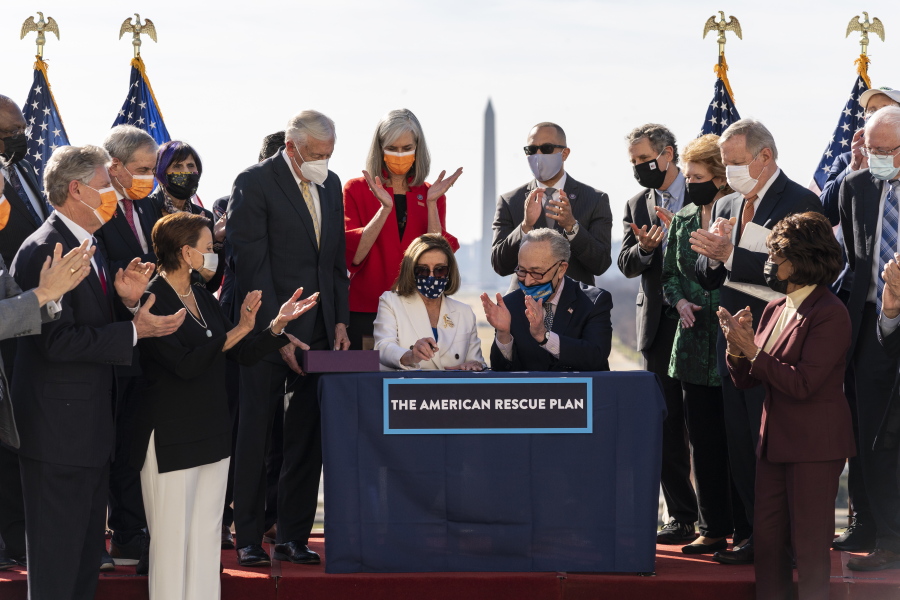Nations are spending unprecedented amounts of money to bounce back from the pandemic and the economic shock it triggered, but less than one dollar out of five spent so far will help fight global warming and heal nature, a new United Nations report says.
The top economies have laid out more than $14.6 trillion to date to rebound from last year’s crisis, with nearly $2 trillion of that aimed at long-term recovery. But only $341 billion — about 18 percent — of that COVID-19 economic recovery money is going to green spending and “building back better,” according to Wednesday’s report by the United Nations Environment Programme and Oxford University.
“It seems like the world is trying to put out a house fire with a garden hose, while a perfectly good hydrant is available just next door,” said report lead author Brian O’Callaghan of Oxford University’s Economic Recovery Project. He said the report highlights missed opportunities, singling out Australia where only 2 percent of $130 billion in recovery spending is green-oriented.
The report focuses on long-term spending, such as on roads, buildings and energy projects, as opposed to quick relief, such as unemployment checks and other emergency relief to keep people and businesses afloat.
Countries in a hurry often choose familiar economic methods instead of investing in “a sustainable inclusive future” which involves shifting the way society acts, said German environment minister Svenja Schulze.
The report came out the same day that the U.S. Congress approved a $1.9 trillion pandemic rescue plan engineered by President Joe Biden, who plans to sign the bill Friday. It is not included in the report because it is more short-term and too recent, O’Callaghan said.
The United States spends about one-quarter of its COVID-19 long-term recovery money — a fraction of overall pandemic spending — on green projects. The report places the United States in the “potential to act” category behind places like Norway, Germany, Finland, Canada and France, but ahead of China, Japan, the United Kingdom, Russia and Saudi Arabia in percentage of recovery spending that is green.
“On the whole so far global green spending does not match the severity of the three planetary crises of climate change, nature loss and pollution,” wrote U.N. Environment chief Inger Andersen.
If the world concentrates on clean energy spending it can come out of this crisis “definitely more able to deal with the abrupt shock that climate change demonstrably is imposing on our societies,” said International Monetary Fund Managing Director Kristalina Georgieva. She said the world needs to “create more jobs and better economic opportunities by investing money in the right way, not the wrong way.”
With 82 percent of the recovery spending not being green, it supports the status quo which is heading in the wrong direction in terms of the environment and income inequality, O’Callaghan said, adding that about 2 percent to 3 percent of the spending is actually “dirty,” boosting use of climate-damaging fossil fuel.
O’Callaghan mentioned “unconditional airline bailouts that could have so easily been green,” praising France for making airlines address climate change in its rescue package. The report singles out the United States, South Korea, South Africa and the United Kingdom for not doing that.
The report highlights Norway, Denmark, Finland and Germany spending nearly half or more than half of large recovery packages on green projects.



